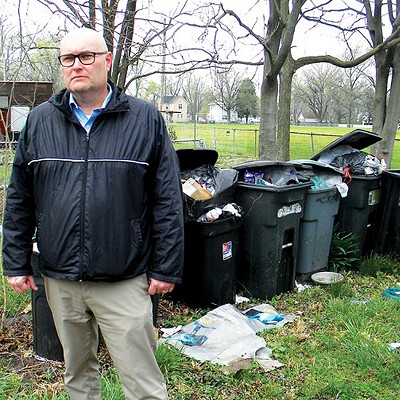Meanwhile, the state’s criminal justice reform group is working out the details of making changes, which aren’t always as simple as they seem.
In February, Gov. Bruce Rauner created the Illinois State Commission on Criminal Justice and Sentencing Reform, tasked with recommending changes to Illinois’ prison and court systems that will reduce the number of people incarcerated and the amount the state spends on them. The commission represents a meeting of the minds on criminal justice, bringing together Republicans, Democrats and reform advocates for an in-depth look at structural and procedural fixes.
An initial report from the commission, released July 1, points out several challenges facing reforms, such as lack of funding for rehabilitation programs. The report also highlights the importance of relying on evidence for decision making instead of public sentiment. The commission’s final report is due by Dec. 31. The Illinois Department of Corrections may be able to implement some recommendations unilaterally, but many will require legislative action.
A separate report released Aug. 3 by the Illinois Policy Institute calls on the state to make several changes that would reduce the number of people headed to prison and the time inmates spend incarcerated. IPI estimates that Illinois could save as much as $109 million per year by diverting offenders to more appropriate treatment or punishment and helping parolees avoid reincarceration.
One of IPI’s recommendations is to expand the state’s Adult Redeploy program, which provides treatment and rehabilitation services in an offender’s community instead of in prison. The program saves the state money and has shown potential to reduce recidivism. Currently, only 39 of Illinois’ 102 counties participate.
The IPI report also calls for dealing with nonviolent crimes, like destruction of property, differently. Instead of prison time, offenders would be required to meet with victims to see the effects of their crimes and make restitution when appropriate.
Nonviolent drug crimes should be reclassified as misdemeanors or petty offenses instead of felonies, IPI says – a move that would treat drug abuse as a sickness instead of a crime. Illinois took a step in that direction last week with a bill to decriminalize possession of 15 grams or less of marijuana. The bill would make possession under 15 grams a violation of civil law instead of criminal law, similar to a parking ticket, while also drastically reducing the associated fine. While acknowledging the need for sentencing reform in Illinois, Rauner used his amendatory veto power to lower the threshold to 10 grams and raise the fine over what the bill suggested, although it would still be lower than the current $1,500 maximum. The bill now goes back to the legislature for a vote to concur with Rauner’s changes or override them.
It’s clear that the Commission on Criminal Justice and Sentencing Reform faces a difficult task, as illustrated by a recent meeting of the commision’s Jails Subcommittee. During the meeting, Mike Funk, director of jail and detention standards for the Illinois Department of Corrections, said the level of communications between jails and the DOC is “slim to none” when it comes to information on inmates being transferred from counties to the state. Often, DOC doesn’t receive crucial information about an inmate, including eligibility for good conduct credit. That leads to delays and mistakes in processing inmates, which translates into wasted time and man hours.
To remedy that, Funk and Greg Sullivan, executive director of the Illinois Sheriffs’ Association, designed a standardized form for all counties to use when transferring inmates. However, DOC assistant director Gladys Taylor said the agency wants to cut down on the amount of physical paperwork concerning inmates by implementing an electronic information system.
“Another piece of paper coming into our classification center is going to get lost,” Taylor said.
Pamela Rodriguez, president and CEO of Treatment Alternatives for Safe Communities, which provides community services for parolees, pointed out that while having counties submit the form electronically makes sense, the rest of the file probably will continue to be submitted as physical documents. That’s because each inmate’s case file is different, and there’s no easy way to standardize the large volume of information each file contains. The files are necessarily large because they contain extensive details about an inmate’s life, from medical records to personal relationships.
Taylor said DOC is also looking to cut costs by asking county jails not to transfer parolees who are rearrested on new felony charges into the state’s custody. Many of those cases are dropped, Taylor said, resulting in inmates spending unnecessary time in prison for charges that amount to nothing. However, that proposal would mean jails shouldering more of the cost of incarceration, likely prompting pushback from county governments.
On Aug. 14 Rauner appointed John Baldwin as director of DOC, a slot Taylor has filled as interim director a handful of times. Baldwin is the former director of Iowa’s Department of Corrections and helped that state design programs that reduce recidivism.
Contact Patrick Yeagle at [email protected].
Steady progress on criminal justice reform
[
{
"name": "Air - MedRect Combo - Inline Content 1",
"component": "11490391",
"insertPoint": "3",
"requiredCountToDisplay": "1",
"parentWrapperClass": "fdn-ads-inline-content-block"
},{
"name": "Air - MedRect Combo - Inline Content 2",
"component": "11490392",
"insertPoint": "7",
"requiredCountToDisplay": "5",
"parentWrapperClass": "fdn-ads-inline-content-block"
},{
"name": "Air - MedRect Combo - Inline Content 3",
"component": "11490393",
"insertPoint": "12",
"requiredCountToDisplay": "9",
"parentWrapperClass": "fdn-ads-inline-content-block"
}
]
Illinois could save millions of dollars annually by implementing reforms to the criminal justice system, according to a new report from a conservative think tank.
Illinois Times has provided readers with independent journalism for almost 50 years, from news and politics to arts and culture.
Your support will help cover the costs of editorial content published each week. Without local news organizations, we would be less informed about the issues that affect our community..
Got something to say?
Send a letter to the editor and we'll publish your feedback in print!


















